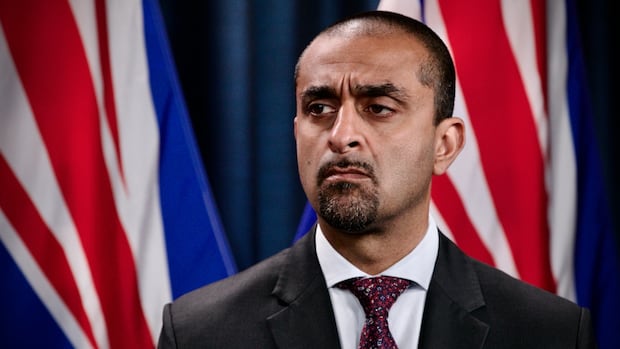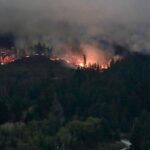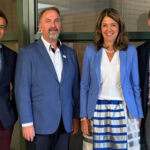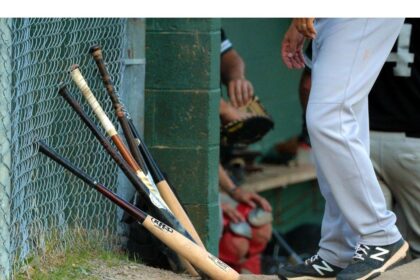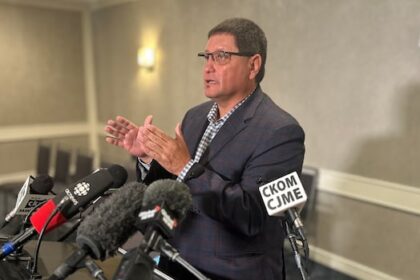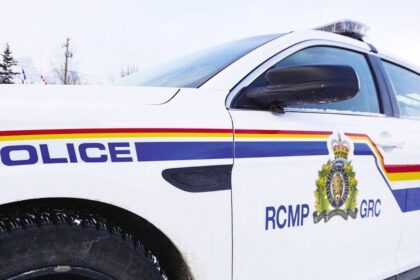British ColumbiaPrime Minister Mark Carney said Friday that removing some retaliatory tariffs is the best approach for Canada at this stage in the trade war. B.C.’s jobs minister says he doesn’t “have as much faith” as Carney that Trump will play ball.Ravi Kahlon says province has no plans to reverse its own retaliatory measures, including U.S. alcohol banKatie DeRosa · CBC News · Posted: Aug 22, 2025 4:51 PM EDT | Last Updated: 1 hour agoB.C. Jobs Minister Ravi Kahlon says he was surprised at Prime Minister Mark Carney’s move to drop retaliatory tariffs against the U.S. (Michael McArthur/CBC)B.C.’s jobs minister says he’s surprised at Prime Minister Mark Carney’s announcement that Canada will remove the retaliatory tariffs Canada has imposed against the United States in an effort to find a truce in the trade war. “It was a bit of a surprise to us,” said Ravi Kahlon, the minister of jobs and economic growth. “It’s a little too soon to tell — to use an ice hockey analogy — whether this is about regrouping at our own end with the puck, or pulling the goalie.” Kahlon says the province has no plans to reverse its own retaliatory measures, including the ban on all U.S. alcohol at government liquor stores. WATCH | B.C. bans U.S. alcohol from government-run liquor stores: B.C. bans all U.S. alcohol at government stores in response to Trump tariffs B.C. initially announced a ban on U.S. liquor from Republican-governed states. Now, it’s yanking all American booze off the shelves at government-run stores. Premier David Eby says it’s being done in response to “escalating threats” from our southern neighbour. As Chad Pawson reports, the premier is also making concessions in his own life to choose Canada first.”We’re not making any changes,” Kahlon said. “We don’t have as much faith as the federal government does right now that the Trump administration is going to co-operate or play ball.”Carney’s latest concession is an effort to “match” what the United States has already done, he said, by exempting tariffs on all goods covered by the Canada-U.S.-Mexico Agreement (CUSMA). Carney says the exemption means 85 per cent of Canadian goods are not subject to the 35 per cent tariffs imposed by the U.S. on Aug. 1. WATCH | B.C. jobs minister skeptical of effectiveness of retaliatory tariff removals: Canada’s retaliatory tariff removal a ‘surprise’ to province, says B.C. Jobs Minister Ravi KahlonRavi Kahlon, B.C.’s minister of jobs and economic growth, says the province is focused on strengthening the local economy as the Canada-U.S.-Mexico Agreement is being renegotiated. He tells BC Today host Dan Burritt the province will give Prime Minister Mark Carney the space to negotiate with the U.S., but he urges more support for forestry workers and investment in Canadian projects. “We have the best deal of anyone in the world right now. We have the lowest tariff rate on average: a little over five per cent versus that 16 per cent average in the world and in some cases much higher.”U.S. President Donald Trump commended the tariff removal, calling it “nice” and saying he wanted to “be good to Canada.”WATCH | U.S. president commends Carney for retaliatory tariff removals: Trump says it was ‘nice’ of Carney to remove retaliatory tariffsIn response to Canada’s decision to lift some retaliatory tariffs, U.S. President Donald Trump said Friday he is ‘working on something’ with Canada, and that he wants to be ‘very good to Canada.’ Reporters asked if Carney’s trade moves will be perceived as weakness against a U.S. government that has wounded Canada’s economy.In response, he also used a hockey analogy.”There is a time in a game, in a big game — and this is a big game — when you go hard in the corners, the elbows up. There’s a time in the game where you drop the gloves in the first period to send a message. We’ve done it, pretty uniquely in the world. We happen to have the best deal with the Americans right now. There’s also a time in the game where you want the puck. You want to stick handle. You want to pass. And we’re moving later in the game.”Canadian Prime Minister Mark Carney and U.S. President Donald Trump. (Gonzalo Fuentes/Reuters, Alex Brandon/The Associated Press)B.C. Conservative leader supports tarriff removalB.C. Conservative leader John Rustad says he supports the move to remove retaliatory tariffs. “Putting tariffs on goods that are imported into Canada is ultimately paid by Canadians, and it actually hurts our economy at a time when our economy is slowing dramatically,” Rustad told CBC News. Cory Redekop, the CEO of the Greater Langley Chamber of Commerce, says those retaliatory tariffs have hurt some B.C. businesses. “Many of my members in Langley and many B.C. businesses have been feeling those retaliatory tariffs in some cases even more than the American ones in the first place.” Redekop says it’s too early to tell if Carney’s strategy will pay off. “If removing the tariffs is going to get us a better CUSMA (Canada-United States-Mexico Agreement) deal, then it’s positive. If we’ve just disarmed for nothing in return, it’s concerning.” Carney’s announcement will have no impact on Canada’s softwood lumber industry, which continues to face anti-dumping and countervailing duties worth a combined 35 per cent. WATCH | U.S. brings total duties on Canadian softwood lumber to 35%: U.S. slaps 20.56% anti-dumping duties on Canadian softwood lumberThe U.S. government has hiked duties on Canadian softwood lumber imports. Washington considers Canadian stumpage fees for harvesting on Crown land an unfair government subsidy. As Akshay Kulkarni reports, it’s the latest blow to B.C.’s struggling forestry industry. Forests Minister Ravi Parmar has described the rate hike as a “gut punch” for B.C.’s forestry industry, which has seen thousands of workers laid off over the last few years. Rustad is pushing for a levy on U.S. thermal coal shipped out of provincial ports, which he says would give Canada a bargaining chip in the softwood lumber talks. “Our softwood industry is on the verge of collapse. It is in really tough shape right now. So, what’s needed is that we need to be able to come at this with a position of strength. Right now, the Americans are holding all the cards, and there’s nothing that we can do to be able to get a deal. So in order to do that, what we should do is, we should start by putting a tariff on thermal coal being exported.” The B.C. government has said thermal coal is an export good that goes through a federally-regulated port, so B.C. has no power to impose tariffs. “What I hear from the Opposition leader is he wants to take more action, more sanctions on the U.S.,” Kahlon said. “And I get that. I, too, feel like we should be doing more. But at the same time, we’re not at the table negotiating with the U.S. government. The federal government is.”ABOUT THE AUTHORKatie DeRosa is the provincial affairs reporter for CBC British Columbia. She is based in Victoria. You can contact her at katie.derosa@cbc.ca.
B.C. jobs minister surprised at Ottawa’s move to drop retaliatory tariffs against U.S.
